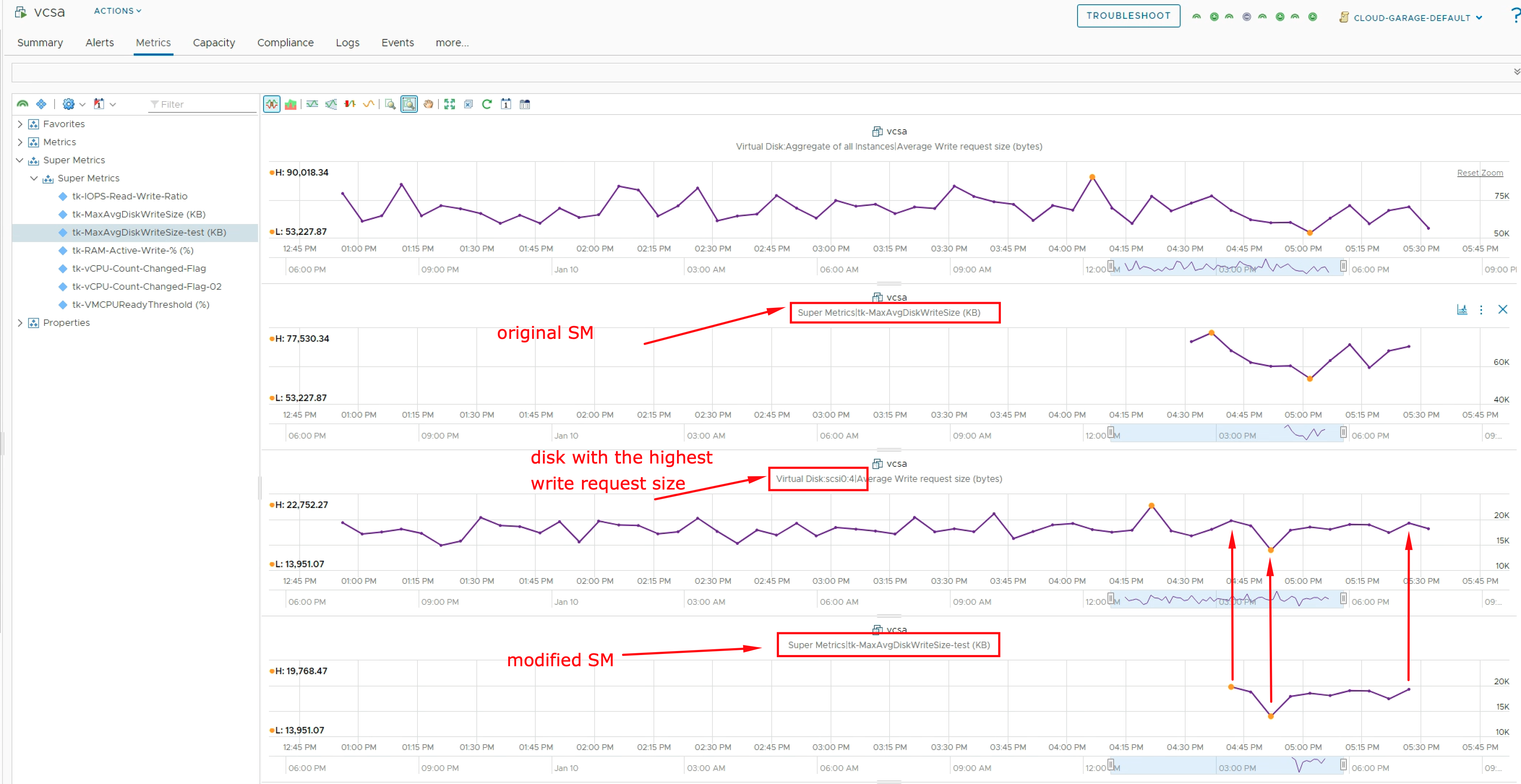As you know vRealize Operations is collecting tons of various metrics. Some of these metrics are so-called “Instanced Metrics” and disabled in the default configuration in newer vROps versions. A list of disabled instanced metrics for e.g. Virtual Machine object type is available here:
If you need any of those metrics, you can enable them in your vRealize Operations Policy.

As you can see in the previous picture, there is an option to specify instances you would like to include or exclude. In my example, I am excluding the CPU (or CPUs) containing “1” in the instanced metric name. Yes, it does not make any sense, it is just an example:-)
Problem statement
In addition or as a replacement for some of the disabled instanced metrics vRealize Operations provides the “Aggregate of all instances” metric, like in this example for Virtual Disk metrics.

The problem now is that in certain situations where you would like to evaluate the instanced metrics to find the maximum, minimum, etc. the aggregated metric may also be taken into the equation, like in views or super metrics.
Use case
One of my customers described a very interesting and important use case.
“I want to determine the highest average write request size”.
One logical way would be to use vRealize Operations Super Metric and create a formula like this one:
max({This Resource: Virtual Disk|Average Write request size (bytes)}) Unfortunately, that approach does not work.
As described in the “Problem statement” this calculation includes the aggregated metric, “VirtualDisk|Aggregate of all Instances”, which leads to a wrong result.
Possible solution
Please be aware that this is ONE possible solution with one drawback that I will explain at the end.
The approach is to exclude the aggregated metric from the formula.
What we cannot do, or at least I do not know how is to exclude a metric based on the instance name.
What we can do is to leverage the assumption that the aggregate will be usually greater than any single instance as it is the sum of all instances. And this is the mentioned drawback. The approach works only when the following assumption is true:
- count of instances is > 1
- at least 2 instances have a value > 0 at the occurrence of super metric evaluation
I am working on an improved version of the formula to get rid of the assumption. For the time being this is what is working taking the mentioned assumption into account:
max(${this, attribute=virtualDisk|writeIOSize_latest, where=($value < ${metric=virtualDisk:Aggregate of all instances|writeIOSize_latest})})
This formula is evaluating only the metrics with values < the value of the aggregated metric.

Outlook
The improved formula will include some if-then-else statements.
Stay safe
Thomas – https://twitter.com/ThomasKopton

1 Comment